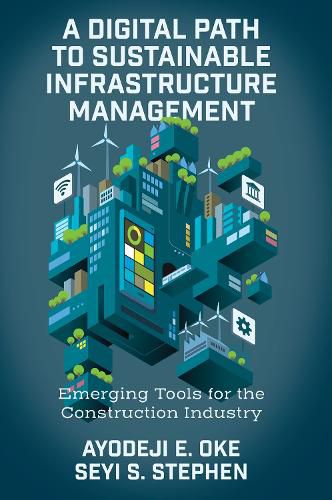Readings Newsletter
Become a Readings Member to make your shopping experience even easier.
Sign in or sign up for free!
You’re not far away from qualifying for FREE standard shipping within Australia
You’ve qualified for FREE standard shipping within Australia
The cart is loading…






As urbanization, digitalization, rising social expectations, and the quest for greener development become increasingly important and called for, a need to transform infrastructure and its management has become more pronounced. A Digital Path for Sustainable Infrastructure Management delivers the much sought-after guidance that the industry seeks to embrace technological advancements, establish new sustainable working practices, and foster socially valuable collaborations.
Oke and Stephen open with a discussion on key sustainability concepts and the crucial measures that the construction sector must effectively establish to keep up with modern-day challenges. Moving to investigating multiple theoretical and practical aspects of novel digital tools, they analyse how these services can contribute to building and maintaining infrastructure better while aiding the impactful realization of globally recognized sustainability goals.
Through an easy-to-follow and iterative structure, readers in both academic and professional settings are equipped with a comprehensive overview of the state of the art. This is a vital reference resource for future works in the area.
$9.00 standard shipping within Australia
FREE standard shipping within Australia for orders over $100.00
Express & International shipping calculated at checkout
As urbanization, digitalization, rising social expectations, and the quest for greener development become increasingly important and called for, a need to transform infrastructure and its management has become more pronounced. A Digital Path for Sustainable Infrastructure Management delivers the much sought-after guidance that the industry seeks to embrace technological advancements, establish new sustainable working practices, and foster socially valuable collaborations.
Oke and Stephen open with a discussion on key sustainability concepts and the crucial measures that the construction sector must effectively establish to keep up with modern-day challenges. Moving to investigating multiple theoretical and practical aspects of novel digital tools, they analyse how these services can contribute to building and maintaining infrastructure better while aiding the impactful realization of globally recognized sustainability goals.
Through an easy-to-follow and iterative structure, readers in both academic and professional settings are equipped with a comprehensive overview of the state of the art. This is a vital reference resource for future works in the area.